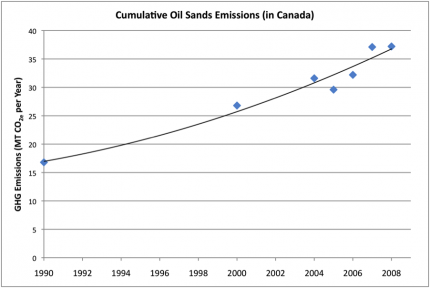Yesterday, U.S. President Barack Obama said, "the long battle to stop the leak and contain the oil is finally close to coming to an end." As this catastrophe transitions from crisis to clean up and compensation, many are already starting to ask questions about whether BP and the U.S. government acted responsibly in the face of the spill. Few will ask whether BP's public relations job was effective. In fact, many have criticized BP for dedicating significant resources (upwards of $50 million) to its public relations efforts in lieu of taking more aggressive action.
Meanwhile, the oilsands public relations battle continues across Canada and in Washington D.C. Yesterday, another public relations chapter opened with the Government of Alberta launching a $268,000 ad campaign, commencing a "full court press" hitting national print publications, the Internet and possibly radio. Already, the province has spent tens of thousands of dollars on advertisements in the New Yorker, Fortune Magazine and the Washington Post, with more to come.
It's well known that public relation campaigns are not designed to resolve issues. They merely present information from a particular perspective. For example, the Stelmach government's advertisement in the Washington Post boasted that the emissions intensity of oilsands has decreased by 39 per cent per barrel of production over the past two decades. While this statement is accurate, it fails to compensate for the fact that greenhouse gas emissions from oilsands have increased a staggering 121 per cent between 1990 and 2009.

A recent analysis conducted by the Pembina Institute provides comprehensive information on greenhouse gas issues associated with oil sands development, highlighting several key concerns. While it's true that there has been a decrease in emissions intensity, the more troubling trend is that planned growth will result in a near tripling of greenhouse gas emission emissions from 2008 to 2020. Furthermore, as a growing proportion of oilsands production comes from in situ drilling operations, which are more greenhouse gas intensive, the greenhouse gas intensity of an average barrel of oilsands will increase in the coming years. Public relations efforts cannot change these facts.
In the midst of this war of words, some unlikely messengers suggest continued public relations campaign may not achieve the desired goal. Ken Chapman, a principal of Cambridge Strategies who recently conducted a poll of Albertans, noted that it would be better to "perform first and message later." Even the premier's council for economic strategy suggested: "It may take a dramatic gesture to convince a skeptical public to applaud Alberta as a responsible natural resource steward." U.S. Ambassador David Jacobson proposed that "they need to do more to demonstrate how they're meeting the challenges of providing energy security while meeting their obligations of environmental stewardship."
 Rather than a public relations campaign, the Canadian public will likely measure the Stelmach government and the oilsands industry by the actions they take to address oilsands impacts. Edmonton Journal columnist Graham Thomson put it well advising that "the best way for the Alberta government and energy companies to win the public relations battle over environmental concerns is through actions, not more public relations battles."
Rather than a public relations campaign, the Canadian public will likely measure the Stelmach government and the oilsands industry by the actions they take to address oilsands impacts. Edmonton Journal columnist Graham Thomson put it well advising that "the best way for the Alberta government and energy companies to win the public relations battle over environmental concerns is through actions, not more public relations battles."
As my colleague Simon Dyer recently said, "Alberta could regain some credibility by pausing new projects approvals until some of the key missing elements to responsible management are in place."
In the case of oilsands, public relations will go only so far to countering a growing image problem. It will likely take a dramatic gesture as suggested by the premier's council for the public in both Canada and the U.S. to take notice.
Danielle Droitsch was the director of U.S. Policy at the Pembina Institute until 2011.



